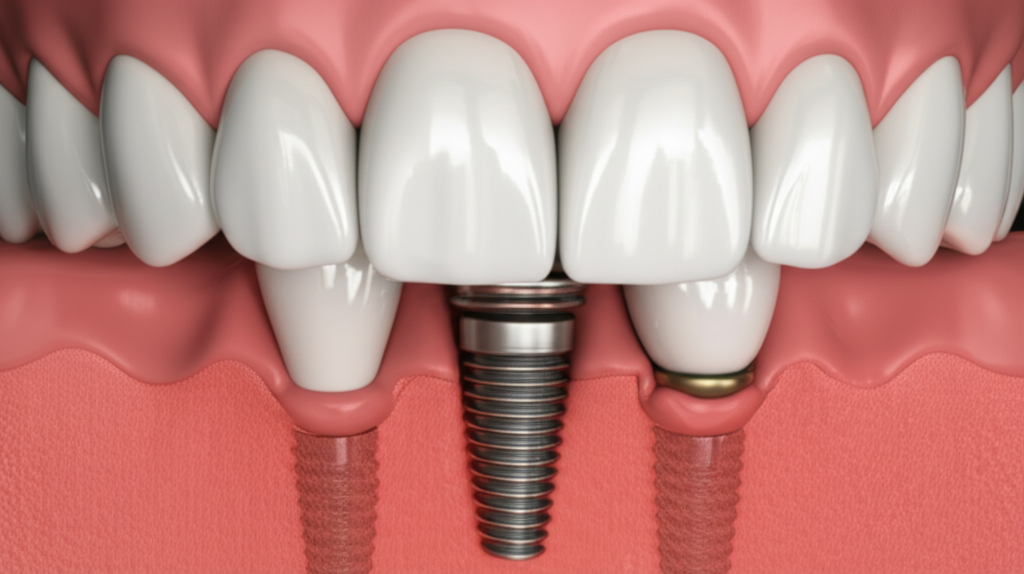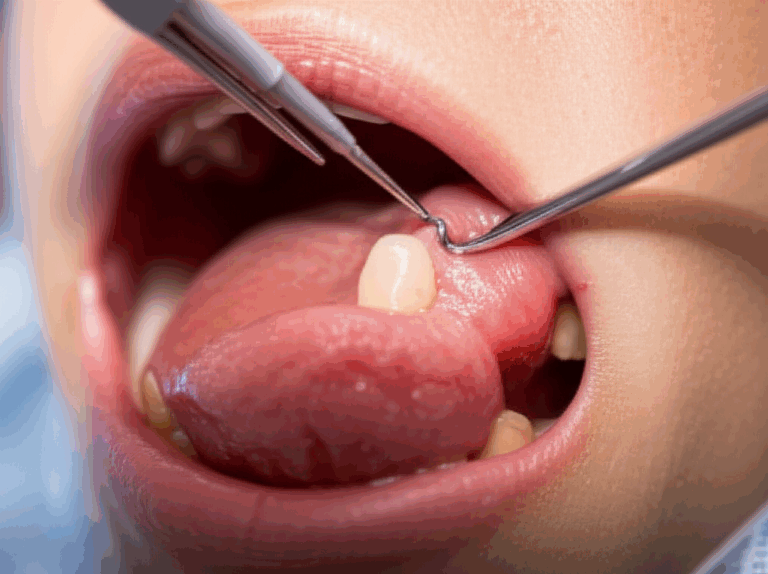
Do Dental Implants Need to Be Replaced? Understanding Lifespan, Care, and What to Expect
That question keeps nagging at pretty much anyone who’s ever gotten a dental implant—do dental implants really last forever, or will you end up replacing them just like you might with crowns, bridges, or fillings? If you’re asking about how long your implant lasts, don’t sweat it. Lots of people have the same question. You’re being smart to wonder, too. After all, dental implants are a big deal—moneywise, physically, and emotionally. It’s totally normal to want some clear answers and good tips to take care of your implant for as long as possible.
We’ll explain the facts about how long implants last, if you might ever have to get them replaced, and some simple ways to make sure your implant lasts. Whether you already have an implant or are just thinking about it, you’ll find clear and honest advice below.
In This Article
Are Dental Implants “Permanent?” Setting Realistic Expectations
Remember those old “set it and forget it” ads on TV? It would be nice if dental implants worked like that—one visit, and then you never have to think about it again. That’s the hope, but reality is a bit different.
What is a Dental Implant, Anyway?
A dental implant isn’t just a single piece. It’s actually made up of three main parts:
- Implant Fixture (the “screw”)—This is the titanium or zirconia part that goes into your jawbone. It acts as the new “root” for your tooth.
- Abutment—A connector, like a small post, that links the implant to your new tooth (the crown).
- Dental Crown (or prosthesis)—The fake tooth part that sits on top and lets you eat, chew, and smile.
The “Permanent” Idea
You might see dental implants called “permanent tooth replacements.” And they do last much longer than other types. But nothing really lasts forever, right? Even the strongest roads need fixing after years and years. The part inside your jaw can last basically forever, but the piece you see (like the crown or the connector) nearly always needs a little care or a swap now and then.
Bottom line: Implants feel like a long-term fix, especially compared to dentures or bridges. Still, some care and possible repair down the road is normal.
How Long Do Dental Implants Last? The Science & Stats
You want the facts. Here’s what research and dentists say.
How Long Each Part Lasts
1. Implant Fixture (The “Screw” or “Root”)
- How long? 25 years or more; for many people, a lifetime.
- Success rate: 90–95% still good at 10 years in lower jaw, 80–90% at 15–20 years.
- Why so strong? The jawbone grows around it and holds it steady (a process called osseointegration).
2. Abutment
- How long? Usually 10–20 years, but sometimes it needs tightening or a new one if it loosens.
- Common problems: Can come loose, especially if you grind your teeth or chew super hard.
3. Dental Crown (The Fake Tooth)
- How long? Usually 10–15 years, because of normal eating and biting.
- Material matters: Porcelain, zirconia, and ceramic are strong, but can still chip, crack, or lose their good looks over time.
Fun fact: Crowns on your own teeth last about as long, so implants really do a great job.
Survival vs. Success: What’s That Mean?
- Survival: The implant is still in your mouth.
- Success: The implant feels fine, doesn’t hurt, and works like it should.
An implant can be “surviving” but still need some help (like fixing the bite or the crown).
Did you know? Over 95% of people with implants are happy, saying their eating, talking, and smiles have improved.
What Makes Dental Implants Last (or Not Last)? Core Factors
Why do some implants last a lifetime, while others don’t? It’s a lot like having a car—good care, good habits, and a bit of luck help you go far.
1. Cleaning Your Teeth and Regular Checkups
Your part: Just like with regular teeth, brushing, flossing, and seeing the dentist twice a year is huge. This helps avoid peri-implantitis (a gum infection that’s the top reason for implant trouble later on).
- Use a soft toothbrush and toothpaste that won’t scratch.
- Try special floss or little brushes for implants.
- Always go to your dental cleanings.
2. Your Health and Day-to-Day Habits
Smoking: If you smoke, your chances of implant trouble are around three times higher than non-smokers. Nicotine makes it harder for your mouth to heal.
Diabetes: If you keep your blood sugar in check, your implant should do fine. If not, you’re more likely to have problems.
Other health things: Having weak bones (osteoporosis), taking certain meds, or having other bone or healing problems can mess with how your implant heals.
Teeth grinding (Bruxism): Grinding or clenching puts lots of stress on the parts. A nightguard can help keep your implant safe while you sleep.
3. Picking Good Materials & Getting a Good Dentist
Not every implant or crown is the same. Stuff like titanium or zirconia is proven strong and safe. And skill during the surgery matters—a dentist or specialist with experience will put the implant where your bone is best.
- Implants put in the right place by a skilled dentist usually last longer.
4. Spot in Your Mouth & Chewing Forces
Back teeth (molars) get chewed on the hardest. Implants back there take more stress, especially if you eat lots of hard foods or like to crunch on hard candy or ice.
5. Accidents and Injuries
Getting hit in the mouth—like from sports or falling—can mess up even a tough implant or the crown on top.
Warning Signs: How to Know If Your Implant Needs Attention
Dental implants don’t beep or flash lights when something’s wrong, but your body does warn you. Don’t ignore these signs. They mean you should call your dentist:
- Ongoing pain or soreness at the implant
- Redness, swelling, or bleeding around your implant
- Loosening or wiggling of the implant, abutment, or top tooth
- Bite feels “off” or your teeth feel different when you chew
- Gums pulling back, showing the metal part
- Bad taste or stink coming from the implant area that won’t go away
- Cracks or chips in the fake tooth (crown) or connector
- Hard to chew near the implant
Getting help early is always better, and fixing things sooner is usually simpler.
The Most Common Reasons Implants Fail or Need Replacement
Implant problems are rare if you take care of it—but when it happens, there’s usually a reason. Here’s what to look out for.
1. Peri-implantitis: Infection Around the Implant
This is like rust creeping in on a car. Peri-implantitis means there’s infection and swelling in the gums and bone near the implant. You can lose bone and the gum can pull away, which might loosen the implant or ruin it.
- Mostly happens a year or more after you get your implant.
- Smokers, people who’ve had gum disease, and folks who don’t clean as much are at higher risk.
Good news: Caught early, your dentist can clean and treat it, sometimes saving the implant.
2. Failed Osseointegration
In simpler words, this is when your jawbone and the implant screw never “grow together.” This is the main reason implants fail early on.
- Happens in about 2–5% of new implants.
- It can be from poor bone quality, infection when it was put in, or other health issues.
3. Mechanical Problems
- Loose parts: The top parts can get loose from chewing hard or if you grind your teeth.
- Cracks: Hard biting or getting hurt can break the crown or the abutment.
- Part wear: After years of chewing, some bits might wear out, especially if you bite down hard or grind.
4. Losing Bone Around the Implant
Even after a good start, you can slowly lose bone from things like gum disease, getting older, or a long infection. If bone shrinks too much, the implant can get loose or fall out.
5. Getting Hurt
Life happens. Accidents like falls or getting hit can damage implants that were otherwise fine.
6. Rare Problems
- Nerve damage: Can sometimes happen if the implant pushes against a nerve during surgery.
- Sinus trouble: For upper teeth, if the implant is too close to your sinus.
If Replacement is Needed: The Dental Implant Redo Process
No one wants to hear they need their implant redone. Here’s what usually happens if that day comes.
Step 1: Find Out What’s Wrong
Your dentist will check:
- What went wrong and where (using X-rays, a CT scan, or just looking)
- If the bone is still strong, or if you need more bone first (bone grafting)
Step 2: Taking Out the Bad Implant
If it needs to come out, it’s usually done with numbness (local anesthesia). Your dentist will gently take out the old implant. Sometimes a bit of bone also has to go.
Step 3: Bone Grafting and Healing (If You Need It)
If you lost some bone, it needs to be built up again. After the bone graft, you’ll heal for a few months so the spot is ready for a new implant.
Step 4: Getting a New Implant
When your bone is ready, a new implant can be put in. It needs a few months to heal and “stick” to the bone like before.
Step 5: Getting a New Abutment and Crown
Once the new implant is stable, your dentist puts on a new abutment and crown, so your tooth is back and working again.
Step 6: How Much Does It Cost?
Replacing an implant can cost anywhere from $3,000 to $6,000 or more, especially if you need bone grafts or extra scans. It might cost as much or more than the first time.
Tip: Sometimes dental insurance pays (like if you lost it from an accident). Check with your company to know what’s covered.
Pro Tips to Maximize Your Implant’s Lifespan
Want your dental implant to last as long as possible? Here’s a quick list that can help make your implant go the distance:
- Brush and floss every day, for real. Implants need to be kept clean just like real teeth—or better.
- Use cleaning tools made for implants. Soft brushes, special floss, or tiny brushes are best. Don’t use gritty toothpaste.
- Go to your dental checkups and cleanings. Dentists can spot issues early and clean around your implant safely.
- Keep health problems under control. If you have diabetes, keeping your blood sugar steady is big.
- Quit smoking. Not smoking is the best thing you can do to help your implant.
- Stop grinding your teeth. Use a custom nightguard if you grind at night.
- Don’t chew on ice or hard candies, and never use your teeth to open stuff. These things break crowns and can mess up your implant.
- Pick a skilled dentist or surgeon for your implant. A good dentist makes a big difference—both for how it looks and how long it lasts.
Studies show that people who take really good care of their implants and see the dentist often still have them working 95% of the time, even 10–15 years later.
Key Takeaways & Your Next Steps
Let’s sum it up with some easy-to-remember points:
- Dental implants are a long-term, reliable way to get missing teeth back—but they aren’t always “one and done forever.”
- The part in your jaw often lasts for decades, maybe a whole lifetime, if you take care of it. The crown (the top part) usually needs some work or a new one every 10–15 years.
- The biggest causes of trouble are infection, not cleaning well, smoking, uncontrolled health issues, and too much biting stress.
- Don’t ignore warning signs: Pain, swelling, bleeding, looseness, or your bite changing.
- Getting help early makes a big difference. Most early problems can be fixed without taking the whole implant out.
- Make your implant last longer by brushing, flossing, visiting your dentist, keeping healthy, and making smart choices.
- Replacing an implant can be tough and cost a lot. Your dentist can explain your choices and what’s best for you.
- Implants are still one of the best fixes for missing teeth out there.
If you want to know even more, you can read about how dental implants and other dental issues compare, or talk to a dental pro at an implant dental laboratory to get more peace of mind.
Your Healthy Smile, Your Smart Investment
Here’s the straight truth: your dental implant is more than a bit of metal. It lets you eat what you like, boosts your confidence, and saves you from dealing with loose dentures or extra bridge work. Give your implant a little daily care—what you get back is years of comfortable eating and happy smiles.
Don’t wait if you see a problem! Call your dentist right away if you have pain, swelling, or any odd movement. The sooner you act, the better chance to fix it and keep your smile healthy.
Still got questions? Book a check-up. Dental offices are used to checking on implants and can give you honest answers—no matter if you’re new or already have one.
Want more info? Check out how different dental materials work at a zirconia lab, or see how new tech in a digital dental lab is making things better for everyone.
Frequently Asked Questions
Q: Can a dental implant be fixed or repaired instead of replaced?
A: Sometimes, yes. If the problem is with the crown or connector, they can almost always be fixed or switched out. If the part in the bone is loose or infected, it might need removing.
Q: Does getting a new implant hurt?
A: Most people say it’s not too bad, pretty much like when you had your first one put in. The area is numbed and it’s usually easy to deal with.
Q: Will my insurance pay for a new implant?
A: Maybe! Depends on your plan and why you need it. Trauma is more likely to be covered. Always ask your insurance company.
Q: How often do dental implants actually fail?
A: Not very often—less than 5% in 10–15 years for non-smokers who clean their teeth well. Crowns (the top part) need to be swapped every 10–15 years.
Q: How do implants compare to dentures or bridges?
A: Implants usually last longer, look and feel more like real teeth, and work better. Dentures and bridges tend to need fixing more often.
Ready to take care of your new tooth? Just remember: little daily steps make your dental implant last! Keep at it, and you’ll be smiling for years.








